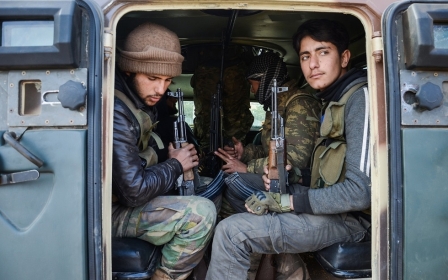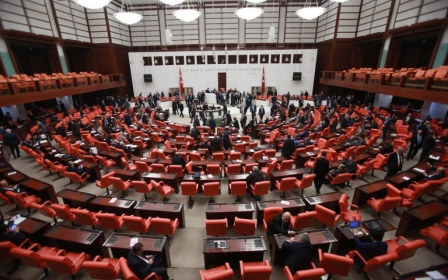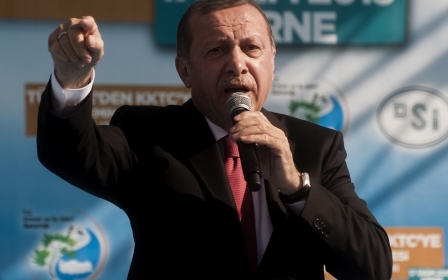Erdogan backs presidential powers bill as referendum looms
Turkish President Tayyip Erdogan has approved a constitutional reform bill paving the way for an executive presidential system, his office said on Friday, and a deputy prime minister said a referendum on the issue was expected on 16 April.
Erdogan says the reform will provide stability at a time of turmoil and prevent a return to the fragile coalitions of the past. His opponents fear it will herald increasingly authoritarian rule.
A brief statement on the presidency website said the bill had been sent to the prime minister's office to be published and submitted to a referendum.
"With the president's approval, eyes are now on the YSK (High Election Board). The YSK will probably announce that April 16 is the appropriate date for a referendum," Deputy Prime Minister Numan Kurtulmus told reporters.
Parliament approved the bill last month after securing more than the minimum 330 votes in the 550-seat assembly. If the legislation is approved in the nationwide vote, it could pave the way for Erdogan to remain in office until 2029.
The reform would enable the president to issue decrees, declare emergency rule, appoint ministers and top state officials and dissolve parliament - powers that the two main opposition parties say strip away balances to Erdogan's power.
Although Erdogan has ridden a wave of popularity since the failed 15 July coup attempt, polls have shown that the vote could be very tight.
However, opponents of the presidential system have also warned that the state of emergency imposed since the coup attempt, combined with continuing violence in the southeast and the arrest of opposition politicians, will make the environment for the "No" vote campaigners unsafe and unfair.
Ertugrul Kurkcu, honorary president of the pro-Kurdish People's Democracy Party (HDP), previously told Middle East Eye that it was "impossible" the referendum would be fair.
"I am very much concerned that the referendum campaign process, this period, could become one of the bloodiest times that Turkey has passed through," he said.
"Not because, as Erdogan says, the terrorists are trying to terrorise the country, but because Erdogan and others are leaving no other avenue but violence for people to express their opposition."
Turkey has already removed or suspended more than 125,000 people and formally arrested 40,000 since the attempted coup during which rogue soldiers tried to overthrow the government and Erdogan, killing more than 240 people, most of them civilians.
In addition, hundreds of civilians, members of the security forces and militants have been killed since the conflict with the Kurdistan Workers Party (PKK) reignited in July 2015 in the worst violence Turkey has seen for 20 years.
New MEE newsletter: Jerusalem Dispatch
Sign up to get the latest insights and analysis on Israel-Palestine, alongside Turkey Unpacked and other MEE newsletters
Middle East Eye delivers independent and unrivalled coverage and analysis of the Middle East, North Africa and beyond. To learn more about republishing this content and the associated fees, please fill out this form. More about MEE can be found here.




